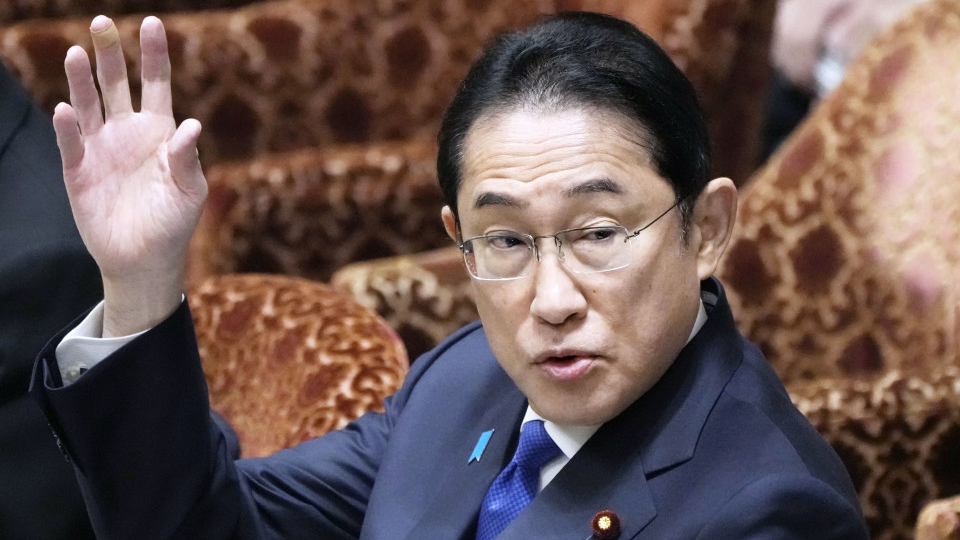English Leaders' Debate: 5 Crucial Economic Points To Consider

Table of Contents
Managing Inflation and the Cost of Living Crisis
The cost of living crisis is arguably the most pressing economic issue facing the UK. Soaring inflation, driven by factors including rising energy prices and global supply chain disruptions, is squeezing household budgets. Understanding how each candidate plans to address this is crucial.
Proposed Solutions to Inflation
Each candidate will likely propose different solutions to tackle inflation and alleviate the cost of living crisis. These solutions might include:
- Tax cuts: Reducing income tax or VAT could boost disposable income, but might also fuel inflation if demand increases too quickly. The effectiveness will depend on the scale of the cuts and the overall state of the economy.
- Energy subsidies: Direct support for energy bills can provide immediate relief, but it's a costly measure that might not address the underlying causes of inflation and could strain public finances. The impact on the national debt needs careful consideration.
- Wage increases: Increasing the minimum wage or supporting collective bargaining can boost consumer spending and reduce inequality, but businesses might pass increased labor costs onto consumers, potentially contributing to further price rises.
- Targeted support: Focusing on vulnerable groups through benefits increases or targeted payments can provide much-needed assistance, but it's crucial to ensure that the support reaches those who need it most and doesn't exacerbate existing inequalities.
The effectiveness of these proposals needs to be evaluated against key economic indicators like the Consumer Price Index (CPI) and the Retail Price Index (RPI) to assess their impact on inflation and the cost of living. Furthermore, the candidates' plans must be assessed for their potential effect on other macroeconomic factors like unemployment.
Long-Term Economic Stability
Short-term solutions to inflation must not compromise long-term economic stability. Sustainable growth requires a multi-faceted approach.
- Reducing the national debt: High national debt can lead to higher interest rates and slower economic growth. Candidates' plans for deficit reduction need scrutiny, considering their impact on essential public services.
- Investing in infrastructure: Strategic investment in infrastructure, such as transport and renewable energy, can boost productivity and create jobs, fostering sustainable long-term growth.
- Fostering business growth: A favorable business environment, including tax incentives and reduced regulation, is essential for attracting investment and creating jobs. This includes support for small and medium-sized enterprises (SMEs) which form the backbone of the UK economy.
A comprehensive plan must balance immediate relief with long-term sustainability. We need to analyze how each candidate plans to reduce the national debt while still investing in crucial areas for future growth.
Healthcare Funding and Sustainability
The NHS faces significant funding challenges and increasing demand. Examining the candidates' plans for healthcare is crucial.
NHS Funding Models
Candidates will propose different funding models for the NHS:
- Tax increases: Higher taxes could provide additional funding but might negatively impact businesses and individual disposable income.
- Spending cuts elsewhere: Reallocating funds from other areas could create tension between competing priorities.
- Efficiency improvements: Improving efficiency within the NHS is vital but requires careful consideration to avoid compromising the quality of care.
The impact of each funding model on NHS waiting times, access to services, and the overall quality of patient care must be carefully considered. Keywords like "NHS funding crisis," "healthcare reform," and "patient access" are crucial to understanding the debate surrounding this issue.
Long-term Healthcare Strategy
Sustainability requires a long-term vision:
- Workforce planning: Addressing staff shortages and ensuring adequate training and retention are crucial for the future of the NHS.
- Technological advancements: Investing in new technologies can improve efficiency and patient outcomes.
- Integration with social care: Effective integration with social care services is essential to reduce pressure on hospitals and improve patient care.
A viable long-term strategy requires a holistic approach that addresses both immediate funding needs and structural challenges.
Brexit's Economic Impact and Future Trade Deals
Brexit continues to shape the UK economy. How candidates address its impact is vital.
Negotiating Trade Deals
Each candidate's approach to post-Brexit trade deals will have significant economic implications:
- Comprehensive trade agreements: These agreements offer extensive market access but might require compromises on regulations and standards.
- Bilateral agreements: These agreements are more targeted but might not provide the same level of market access.
- Focus on specific sectors: Prioritizing trade deals that benefit specific UK industries can be beneficial but requires careful analysis of potential trade-offs.
Understanding the potential benefits and drawbacks for specific sectors, like agriculture, manufacturing, and services, is essential. Keywords like "trade negotiations," "post-Brexit trade," and "global trade" are vital for understanding this complex issue.
Addressing Brexit-Related Challenges
Brexit has presented several economic challenges:
- Supply chain disruptions: Candidates' plans to mitigate supply chain issues and ensure the smooth flow of goods are crucial.
- Labor shortages: Addressing labor shortages in key sectors, and strategies for attracting and retaining skilled workers, are critical for economic growth.
- Regulatory hurdles: Navigating new regulatory landscapes and ensuring a competitive business environment are vital for UK competitiveness.
Examining how the candidates plan to address these challenges will reveal much about their economic competence and long-term vision.
Environmental Policies and Green Investments
Balancing environmental sustainability with economic growth is a key challenge.
Green Transition and Economic Growth
Candidates' plans for a green transition must consider:
- Green investment plans: Investment in renewable energy, energy efficiency, and green technologies will be essential for meeting environmental targets.
- Renewable energy initiatives: Promoting renewable energy sources and phasing out fossil fuels are critical for reducing carbon emissions.
- Job creation in the green sector: A successful green transition must create new jobs and opportunities in the green economy.
These plans should be evaluated in terms of their impact on economic growth, job creation, and their contribution to achieving net-zero targets.
Impact on Businesses and Industries
Environmental policies will have a significant impact on various sectors:
- Costs and benefits for specific industries: Candidates' plans should address the potential costs and benefits for industries facing significant changes, such as manufacturing and transportation.
- Supporting businesses in the transition: Government support for businesses to adapt to new regulations and invest in greener technologies is essential.
It is crucial to assess how candidates plan to balance environmental protection with economic realities and support affected businesses in the transition to a greener future.
Taxation and Public Spending
Taxation and public spending are fundamentally linked to economic growth and social welfare.
Tax Policies and Their Impact
Each candidate's tax policy will differ significantly:
- Income tax: Changes to income tax rates will have a direct impact on disposable income for individuals.
- Corporation tax: Changes to corporation tax rates will affect business profitability and investment decisions.
- VAT: Changes to VAT can have a significant impact on consumer spending and inflation.
The impact of different tax policies on different income groups and the overall economy needs thorough analysis, considering their potential influence on income inequality and economic incentives.
Public Spending Priorities
Candidates will prioritize different areas of public spending:
- Education: Investment in education can improve human capital and long-term productivity.
- Infrastructure: Investment in infrastructure can boost economic productivity and create jobs.
- Social welfare: Social welfare spending impacts inequality and social stability.
Understanding where candidates prioritize public spending reveals much about their economic and social vision for the UK.
Conclusion
This analysis of five crucial economic points highlights the significant differences in the approaches of the candidates in the English Leaders' Debate. Understanding their stances on inflation, healthcare, Brexit, environmental issues, and taxation is essential for voters to make informed decisions about the future direction of the UK economy. By carefully considering these key points, you can assess which candidate's economic vision best aligns with your priorities. Don’t miss the opportunity to thoroughly research the candidates’ plans before the English Leaders' Debate and make your voice heard! Engage with the debate and hold the candidates accountable for their economic policies and their impact on the UK economy.

Featured Posts
-
 Mlb News Yelich Hits First Homer Post Back Surgery
Apr 23, 2025
Mlb News Yelich Hits First Homer Post Back Surgery
Apr 23, 2025 -
 Yankees Cortes Dominates Reds Suffer Third Consecutive Defeat
Apr 23, 2025
Yankees Cortes Dominates Reds Suffer Third Consecutive Defeat
Apr 23, 2025 -
 Eleventh Inning Walk Off Bunt Delivers Brewers Victory Over Royals
Apr 23, 2025
Eleventh Inning Walk Off Bunt Delivers Brewers Victory Over Royals
Apr 23, 2025 -
 Cincinnati Reds Break Scoring Drought In Brewers Game
Apr 23, 2025
Cincinnati Reds Break Scoring Drought In Brewers Game
Apr 23, 2025 -
 Yelich Returns To The Diamond First Spring Start Since Back Surgery
Apr 23, 2025
Yelich Returns To The Diamond First Spring Start Since Back Surgery
Apr 23, 2025
